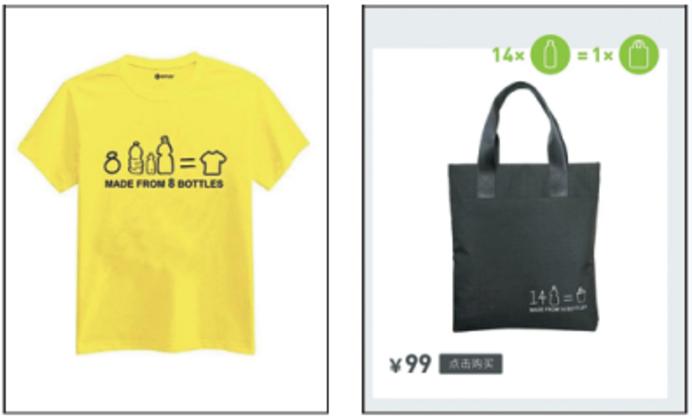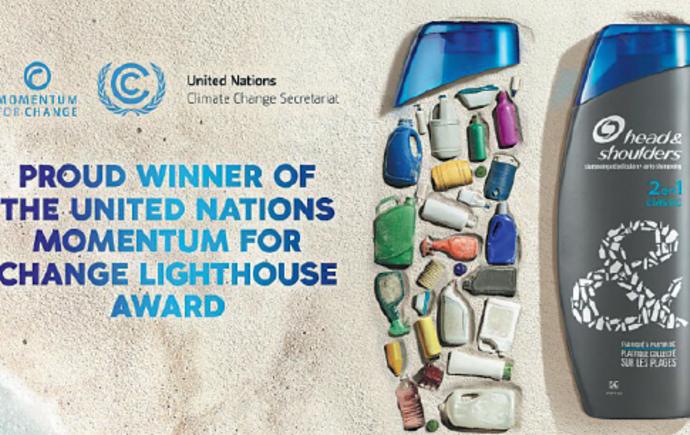Turning waste into wealth
One of the key features that makes this World Cup edition special is its eco-friendly commitment, as indicated in the Sustainability Strategy promoted by FIFA and the Russian Local Organizing Committee.
The monthlong 2018 FIFA World Cup in Russia is expected to attract an estimated 3.4 billion viewers worldwide, according to research firm GlobalWebIndex.
That means nearly half of the world's population will be following the 64 matches to decide the one winner to raise the golden trophy.

One of the key features that makes this World Cup edition special is its eco-friendly commitment, as indicated in the Sustainability Strategy promoted by FIFA and the Russian Local Organizing Committee, which aims to make this a "greener and more sustainable" World Cup.
Across the 12 stadiums certified as eco-friendly, a system has been implemented to manage and recycle waste, which is expected to help reduce the negative environmental impact, said Alexey Sorokin, CEO of the Russia 2018 LOC, in a news release.
Besides regular recycling bins, green-colored machines spotted at these venues have been drawing attention. It's a fancy, high-tech novelty that collects plastic bottles and promises to turn them into chic T-shirts and tote bags. And it is China-made.
Despite the absence of China's national soccer team at the tournament, the green technology coming from the country has been welcomed by local communities in Russia and soccer fans from all over the world.
An active group of Russian volunteers has been guiding spectators at the stadiums to recycle plastic bottles properly, said Liu Xuesong, executive vice-president of Incom Recycle, the creator and operator of the plastic recycling system, in an interview with Xinhua News Agency.
Imagine this: After finishing a bottled drink, you can easily locate a recycling machine near where you are, find it, put your empty bottle in it and get a reward.

Every eight bottles can make a cool T-shirt and every 14 a stylish tote bag for multiple uses.
In Beijing alone, 5,000 Incom boxes like the ones at the World Cup venues are functioning, interconnected and monitored though the company's network.
The company's statistics show that more than two million people are active users of these smart recycling devices and more than 54 million plastic bottles have been collected since 2012, equivalent to more than 8,100 metric tons of petroleum saved, 55,350 trees planted or cutting carbon dioxide emissions by 4,050 tons.
Founded in 2003, Incom Recycle is present in more than 20 countries and regions besides the Chinese mainland, providing integral solutions to recycle and reuse industrial and household waste. It is representative of the growing recycling business in China.
Another representative, BGG Recycle, an innovative business-to-business platform for recyclable resources, has proven that the "dirty business" of waste management can be profitable, by making an annual revenue of 100 million yuan ($15.5 million) in the first year of operation.
Its founder, Anna Gui, a former Wall Street managing elite, started the IT company in 2016 to tackle the packaging waste problem worsened by the rapid surge of e-commerce in China. The convenient BGG app connects office buildings and companies with collectors, and after preliminary sorting the collected resources are sold to factories as raw materials.
"Our vision is to put the limited resources into an infinite circle of sustainability through innovation," Gui told Xinhua. The sector has always been profitable in China, even though the "garbage collectors" were often undervalued and their contribution to environmental protection underestimated.
By cutting the middlemen and increasing the collecting efficiency with the latest technologies, BGG has helped raise the recycling rate by 10 to 20 percent in nine Chinese cities, where they have been providing thorough, personalized solutions. The collectors working with the platform have seen their incomes rise by 50 percent or even doubled, Gui said.
"I'm optimistic about our business reaching more than 50 cities within three years. We will be providing services to more than 50,000 small businesses and collaborating with more than 100,000 collectors," she said.
It is predicted that BGG will rake in a revenue of 1 billion yuan in 2018, with more programs being implemented nationwide.
Besides domestic players, China also welcomed aides from the outside. TerraCycle, a UN Monument Award-winning waste management company based in Trenton, New Jersey, has joined the cause to tackle China's plastic pollution.

TerraCycle came to China in 2016 with a Colgate-sponsored program to recycle oral care waste such as used toothpaste tubes and toothbrushes. It has since collected 63,000 pieces of oral care waste from Chinese consumers.
A contest was launched recently among elementary schools in Shanghai for young children to recycle oral care waste and get votes on children's drawings under the theme of Green Future. The winning school will receive the prize of a 3-D printer.
"A green future will not happen without a clean and healthy environment - that's the educational message we want to send out," said Tom Szaky, founder and CEO of TerraCycle in an interview with Xinhua.
TerraCycle began in 2001 when Szaky, then a Princeton freshman, and his friend created an organic fertilizer made from waste-fed worm excrement. To date, more than 80 million people in 21 countries have helped to collect and recycle enough waste to raise over $21 million for charities around the world.
Last year, TerraCycle created the world's first recyclable shampoo bottles for Procter & Gamble's Head & Shoulders brand, with 25 percent of plastic waste collected from beaches, rivers and other waterways worldwide. The project won the United Nations' Momentum For Change Lighthouse Award in October 2017.
Szaky explained TerraCycle tries to eliminate the idea of waste and is doing that in three ways. First, to recycle everything, especially those hard-to-handle "non-recyclables" such as cigarette butts and candy wrappers. Second, to make products out of waste, such as the beach plastic bottles. And third, to close the recycling loop and make it smaller.
TerraCycle's coming to China "is the combination of client's demand and great opportunity," he told Xinhua.
"The waste issue caused by consumerism has actually been raising social awareness toward this problem - which means that people are willing to face the issue and take part in solving it," Szaky said.
"The government has been very supportive as well in terms of green and sustainable business," Szaky said, taking the example of China leading the world in wind and solar energy production.
"We were lucky that our client wanted to bring the recycling program to China at the right time," he said.
China has been promoting energy conservation and environmental protection industries as one of the seven emerging strategic pillars of the economy since 2012. In its 13th Five-Year Plan (2016-20), a target was set to increase the added value of these industries to account for 3 percent of GDP by 2020.
Fiscal and tax support has been granted to technological researchers and businesses that provide solutions, products and services of pollution control, of which waste management is one of the key aspects.
Encouraged by preferential policies and the strong and urgent demand, the recycling business has witnessed an increasing number of players coming along. Some have stayed and thrived, while others failed and had to quit.
"Waste management is crucial for public well-being and environmental protection, yet many startups, though with noble and ingenious ideas, failed because it was difficult for small businesses to maintain a profit margin to keep on, especially in the early stage," said Mao Da with Beijing Normal University, a scholar in environmental history and founder of the China Zero Waste Alliance, a nongovernmental think tank.
At TerraCycle, a 1 percent profit margin had been maintained for more than a decade up to 2013. In 2017, the company's sales number reportedly surpassed $20 million.
"What we are doing is changing people's old habitswe want them to keep at home for a while the rubbish they used to throw out, and ship it to us. Getting people to care about recycling is our biggest challenge," Szaky said.
"Since we are already recycling the 'non-recyclables', there's no direct financial benefits there for them. So one of the most important things that we do here is to educate - we raise awareness of the issue, and let people know that the environment is worth the cost," he said.
The company also offers incentives as rewards. For example, consumers can gain TerraCycle points based on how much they have recycled, and convert the points into charitable cash donations.
"But it's the education part that we are focusing on the most," he stressed.
But changing people's habits through education may take too long to address the critical pollution issues, according to Liu Xuesong with Incom Recycle. She urged the authorities to make top-down designs with legal instruments to determine producers' responsibilities in the recycling process.
"To our knowledge, more than 50 countries and regions around the world have been implementing laws and regulations to establish the recycling obligations of the producers," she said.
In countries such as Germany, Australia and Lithuania, a deposit is taken from consumers when a product with recyclable single-use packaging material is sold, and the deposit is returned to the consumers when the soda bottles, tin cans or boxes are given back for recycling.
"It has been proven as the most effective way in raising the recycling rate to an average of 95 percent in these countries," said Liu.
Earlier this year, the European Union announced a strategy to make all plastic packaging in the EU recyclable by 2030. Multinationals often criticized for producing huge amounts of packaging waste like Coca-Cola, P&G and Colgate have since announced commitments to 100 percent recyclable packaging by 2030. Other leading brands, retailers and packaging companies including evian, L'Oreal, Mars, PepsiCo, McDonald's, Unilever and Walmart promised to work towards 100 percent reusable, recyclable or compostable packaging by 2025 or earlier.
"The producers should take their social responsibilities and play a major part in recycling their packaging waste," she said. "Once the recycling rate goes up, we have the technology and capacity to turn the waste back into valuable resources, and the plastic pollution would stop growing worse."
Incom Recycle has partnered with Coca-Cola to recycle its packaging waste in China.

Another challenge is to change society's bias against recycling professionals and to attract talented individuals, said Gui.
"Many well-prepared talented individuals wouldn't consider recycling as a vocational choice, and those experienced collectors are used to working on their own... It will take time for this long-existing sector to recognize our modern values," she said.
"The future of the sector lies in the intelligent transformation of old practices," said Gui, who has a master's degree in information engineering.
"An intelligent recycling and reuse system is the inevitable trend. The entire process, from where the waste is produced, to the circulation in the middle, and to the waste processing companies, should be monitored, supervised and properly deployed," she said.